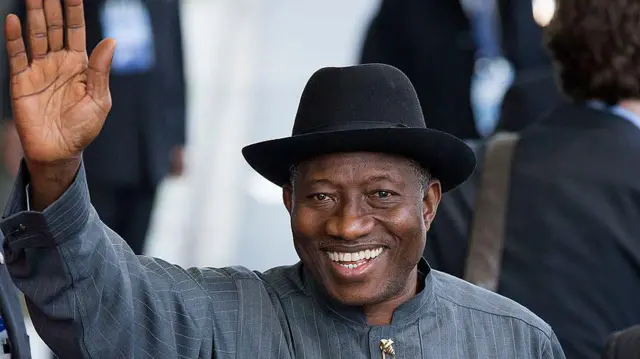by Emmanuel Onwubiko
The truth is that vigilantism is bad for democracy and unless checked, scholars fear that it can induce a dangerous self-perpetuating spiral.
Over a year ago, a sleepy community in Rivers State, Umuokiri- Aluu gained notoriety in the international crimes lexicon when four innocent youngsters, all undergraduate students of the University of Port Harcourt were rounded up, framed up over trumped up allegation of stealing some laptop computers and killed.
Sadly, the police operatives failed to save the lives of the young chaps. More sad however, is that one of the police operatives was seen participating in the lynching of the boys who by law should be presumed innocent until a competent court of law determine otherwise. It was later emerged that the boys were completely innocent.
Their names were listed as Biringa Chidiaka Lordson, Ugonna Kelechi Obuzor, Mike Lloyd Toku and Tekena Erikena. Sadly, their killers are yet to be prosecuted and convicted because of the slow and inefficient justice delivery system in Nigeria – a sad reminder of our justice system.
Also, over a year ago, a postgraduate student of the Nasarawa State University and daughter of a retired Army General, Miss. Cynthia Osokogu was lured to a Lagos hotel by some male strangers she had met on one of the social networks and slaughtered even as her property were stolen. The bandits were arrested by the Lagos State police command but again the slow criminal justice administration in the nation’s court has not allowed the killers to face the full weight of the law.
A friend recently sent to my Black Berry messenger a video evidence of how a female undergraduate student forced to stay home due to the protracted ASUU strike was wrongly accused of stealing a BB phone and from the film said to have been recorded in Benin City, the mob made up mostly of young men were seen sexually harassing and violently tearing off her clothes. The innocent girl was never afforded the legal option of defending herself in court. She later committed suicide.
Mob action is said to be rationalized by the idea that legal mechanism for criminal punishment are either non-existent or insufficient. Members of vigilante see government as ineffective in enforcing the law; and such individuals often justify their actions as fulfilment of the wishes of “the community”, so says experts.
Crime statisticians say that persons alleged to be “escaping the law” are sometimes victims of vigilantism even as vigilante behaviour involves varying degrees of violence. Vigilantes may assault verbally or physically or may vandalize properly or actually go as far as killing individuals as have happened severally in different parts of Nigeria.
In a constitutional democracy such as Nigeria, extra-legal killing is illegal and therefore must be punished and if not punished then impunity and anarchy will set in. Historically, several groups and individuals had been labelled as vigilantes by historians and the media. Vigilantes have been central to several creative fictional works and in some cases have been depicted as heroes (e.g. Batman, Superman, Wonder Woman, etc).
Vigilantism and the vigilante ethos existed long before the word vigilante was introduced into the English lexicon. There are conceptual and psychological parallels between the Dark Ages and medieval aristocratic custom of private war or vendetta and the modern vigilante philosophy, in the thinking of analysts.
In the 20th century, vigilantism has dominated major discourse among legal historians because of the wider application of this sort of unconstitutional practice whereby suspected criminals are subjected to instant punishment even to a point of being killed for minor offences like theft of bread.
Some notorious vigilantes in Nigeria since the advent of democracy in 1999 include the Bakassi Boys of Nigeria (Onitsha) who were viewed as instrumental in lowering the region’s high crime when the police were perceived to be ineffective.
In Maiduguri, Borno State, the Joint Military Task Force have set up a loose vigilante group made up of young community civilians to hunt down members of the dreaded Islamic terrorist group, Boko Haram who are believed to be living among the villagers. So is the Nigerian government in support of vigilante justice since the Armed Forces in Maiduguri now reckon with the so-called civilians JTF accused of carrying out lynch mob justice on suspected Boko Haram terrorists? Experts with considerable knowledge of constitutionalism have warned severally that the government’s romance with various kinds of vigilante groups could backfire and endanger the long term objective of institutionalizing respect for the fundamental human rights of citizens and the enthronement of respect for the rule of law which are key indicators of democracy.
Those who engage in vigilante violence justify acts as being in aid of fighting crime as is now being done in the North East region of Borno State with the full backing of the civilian and military authorities.
Scholars with considerable background of media law say that there is a causal assumption conspicuously promoted in the popular media that mob violence is an inevitable consequence of high crime and the perception of inadequate and/or inefficient policing.
The truth is that vigilantism is bad for democracy and unless checked, scholars fear that it can induce a dangerous self-perpetuating spiral.
Frustrations with the police and courts are real and present grave danger to the survival of democracy and therefore must be tackled professionally with zeal, speed and accuracy. However the culture of violence in Nigeria cannot be eradicated or reduced by resorting to further violence as a solution.













